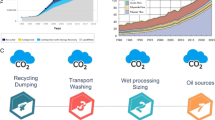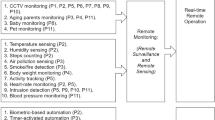Abstract
Public interest in the durability of household appliances may be traced back 40 years to criticism of planned obsolescence raised by an emerging consumer movement. A recent revival of interest in product life spans has taken place in the context of increasing waste generation and debate prompted by proposed producer responsibility legislation, but data on the age of discarded products and consumer attitudes to product life spans have been lacking. This paper draws upon recent data from research into discarded household appliances in the UK to enhance a theoretical model of product obsolescence and explore some implications for marketing and public policy. A survey of over 800 households provided quantitative data on consumer attitudes and behaviour relating to appliance life spans and a subsequent series of focus groups enriched this data with personal narratives. Respondents were evenly divided on whether or not appliance life spans are adequate. Variations in behaviour demonstrated how users may influence appliance life spans. Overall, the results suggest that consumers have an important role in reversing the trend toward increased appliance waste but currently face economic disincentives and lack adequate product information.
Similar content being viewed by others
References
AEA Technology (1997). Recovery of WEEE: Economic and Environmental Impacts. Report produced for European Commission DG XI.
F. Alpert B. Wilson M. T. Elliott (1993) ArticleTitlePrice signalling: Does it ever work Journal of Consumer Marketing 10 IssueID4 4–14
G. Antonides (1990) The lifetime of a durable good Kluwer Dordrecht
J. M. F. Box (1983) ArticleTitleExtending product lifetime: Prospects and opportunities European Journal of Marketing 17 IssueID4 34–49
W. D. Conn (1977) Consumer product life extension in the context of materials and energy flows. D. W. Pearce I. Walter (Eds) Resource conservation: Social and economic dimensions of recycling Longman London 127–143
T. Cooper (1994a) Beyond recycling: The longer life option New Economics Foundation London
T. Cooper (1994b) ArticleTitleThe durability of consumer durables Business Strategy and the Environment, 3 IssueID1 23–30
T. Cooper (2000) ArticleTitleWEEE, WEEE, WEEE, WEEE, all the way home European Environment 10 IssueID3 121–130
T. Cooper K. Mayers (2000) Prospects for household appliances Urban Mines Halifax
R. Dardis N. Gieser (1980) ArticleTitlePrice and quality of consumer goods: Are they more closely related in the seventies than in the sixties Journal of Consumer Policy 4 238–248
DEFRA (Department for Environment, Food and Rural Affairs) (2000). Waste strategy 2000 for England and Wales. London: TSO. Cm. 4693.
Department of the Environment and the Welsh Office (1995). Making waste work: A strategy for sustainable waste management in England and Wales. London: HMSO. Cm 3040.
E. G. Falkman (1996) Sustainable production and consumption World Business Council for Sustainable Development Geneva
B. Granberg (1997) The quality re-evaluation process: Product obsolescence in a consumer-producer interaction framework University of Stockholm, Department of Economic History Stockholm
J. Hanson (1980) ArticleTitleA proposed paradigm for consumer product disposition processes Journal of Consumer Affairs 14 49–67
G. D. Harrell D. M. McConocha (1992) ArticleTitlePersonal Factors related to consumer product disposal tendencies Journal of Consumer Affairs 26 397–417
E. Heiskanen (1996) Conditions for product life extension National Consumer Research Centre. Working Paper 23 Helsinki
J. Jacoby C. Berning T. F. Dietvorst (1977) ArticleTitleWhat about disposition Journal of Marketing 41 IssueID2 22–28
M. Kostecki (1998) The durable use of consumer products. Kluwer Dordrecht
D. McLaren S. Bullock N. Yousuf (1998) Tomorrow’s world Earthscan London
National Consumer Council (1989). The consumer guarantee. London: National Consumer Council.
OECD (1982). Product durability and product-life extension. Paris: Organisation for Economic Co-operation and Development.
V. Packard (1960) The waste makers Pelican Harmondsworth
M. Redclift (1996) Wasted: Counting the cost of global consumption Earthscan London
C. Robson (1993) Real world research Blackwell Oxford
G. B. Sproles (1977) ArticleTitleNew evidence on price and product quality Journal of Consumer Affairs 11 IssueID1 63–77
W.R. Stahel T. Jackson (1993) Durability and optimal utilisation: Product-life extension in the service economy. Lewis In: T. Jackson (Ed.), Clean production strategies, pp. 262–291. Boca Raton, FL
E. van Hinte (1997) Eternally yours: Visions on product endurance. 010 Publishers Rotterdam
N. van Nes (2003) Replacement of durables: Influencing product lifetime through product design Erasmus University. PhD thesis Rotterdam
Author information
Authors and Affiliations
Corresponding author
Rights and permissions
About this article
Cite this article
Cooper, T. Inadequate Life?Evidence of Consumer Attitudes to Product Obsolescence . J Consum Policy 27, 421–449 (2004). https://doi.org/10.1007/s10603-004-2284-6
Issue Date:
DOI: https://doi.org/10.1007/s10603-004-2284-6




